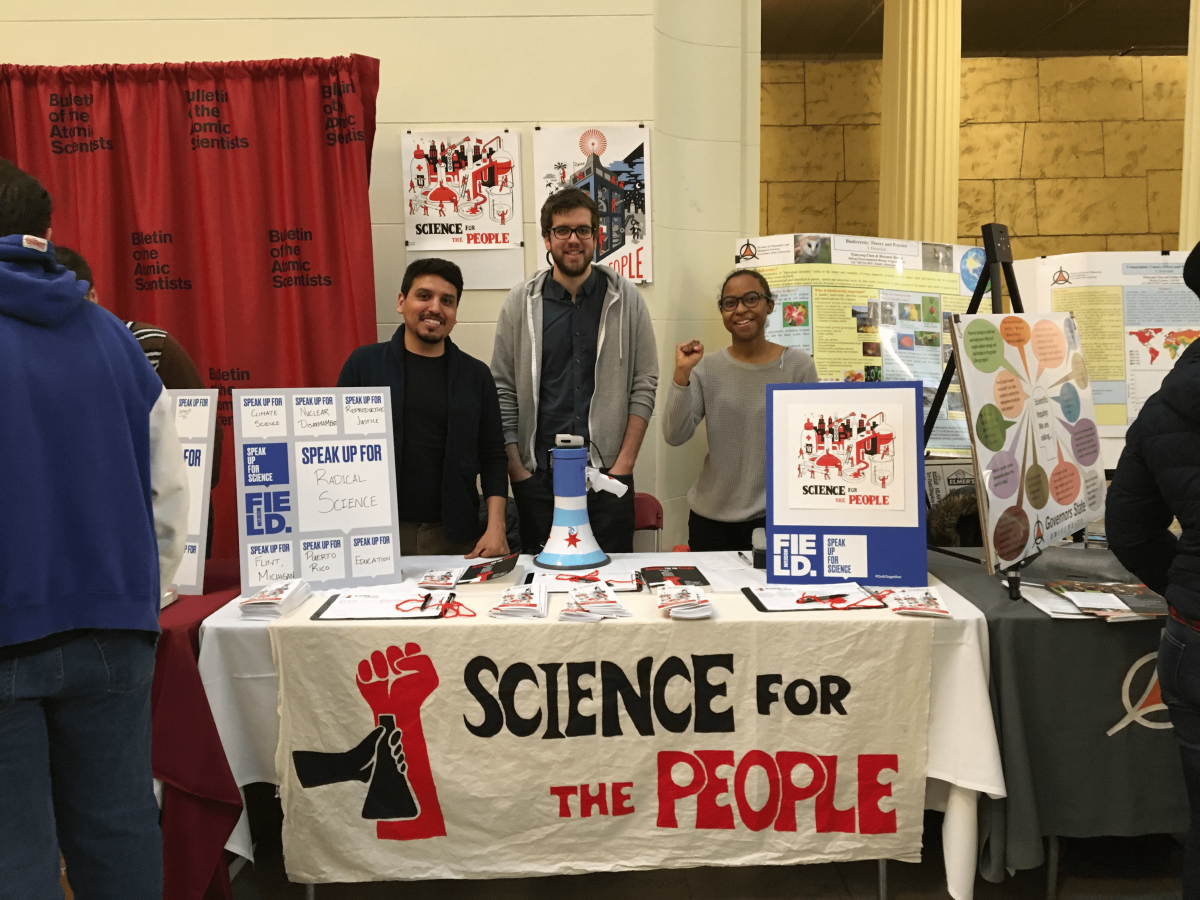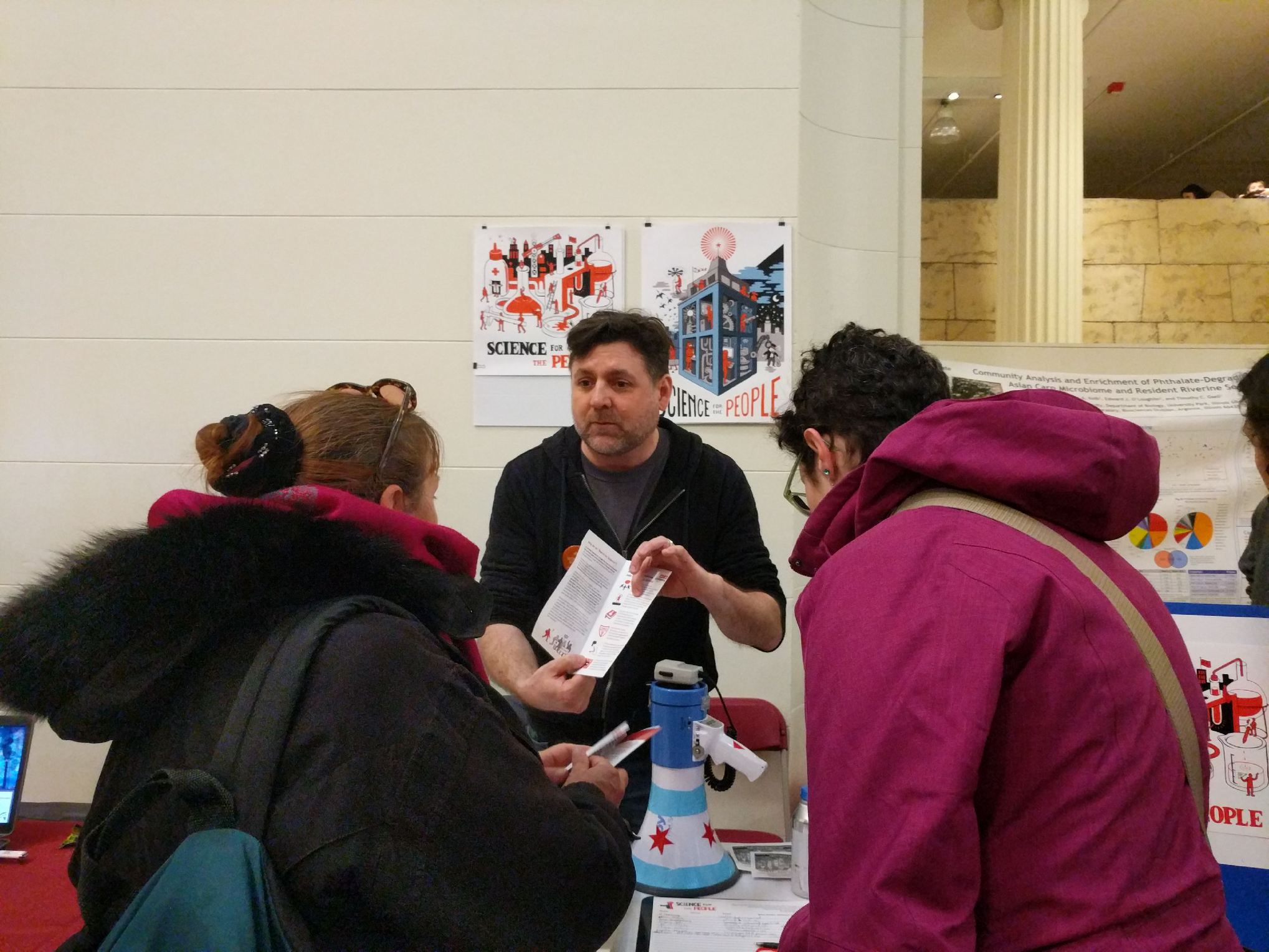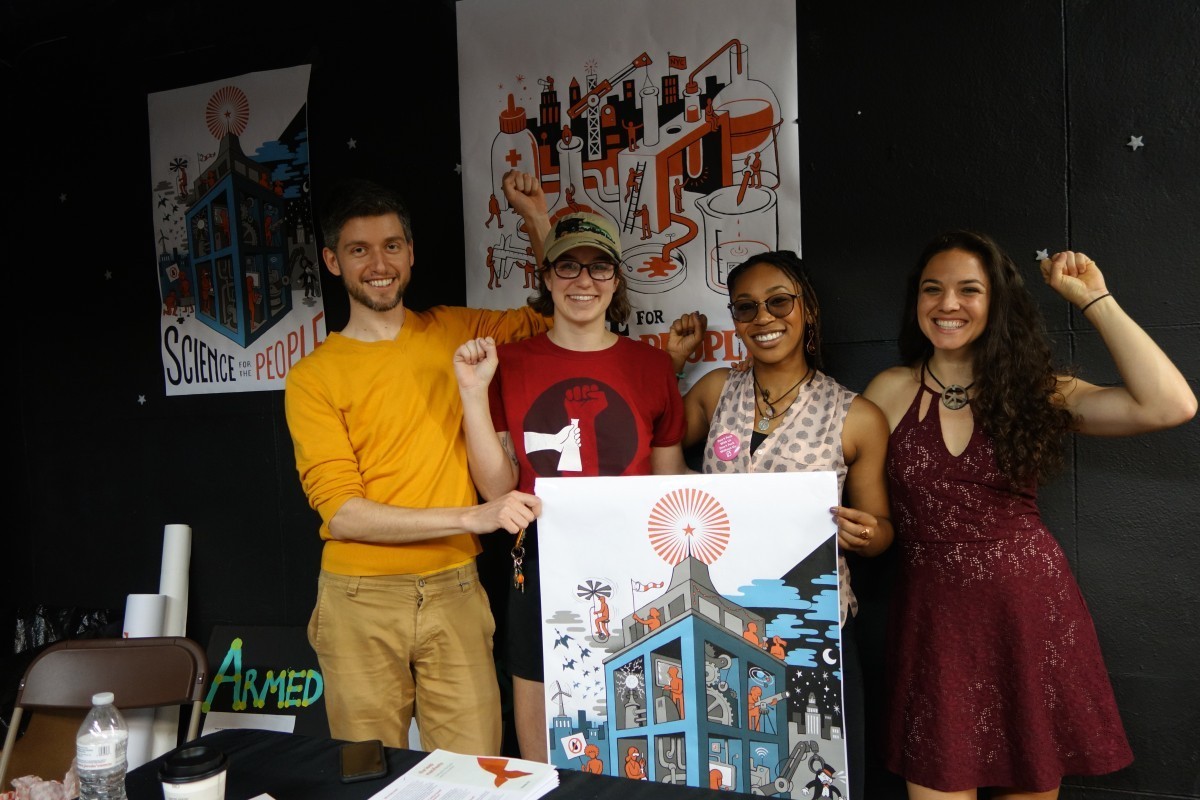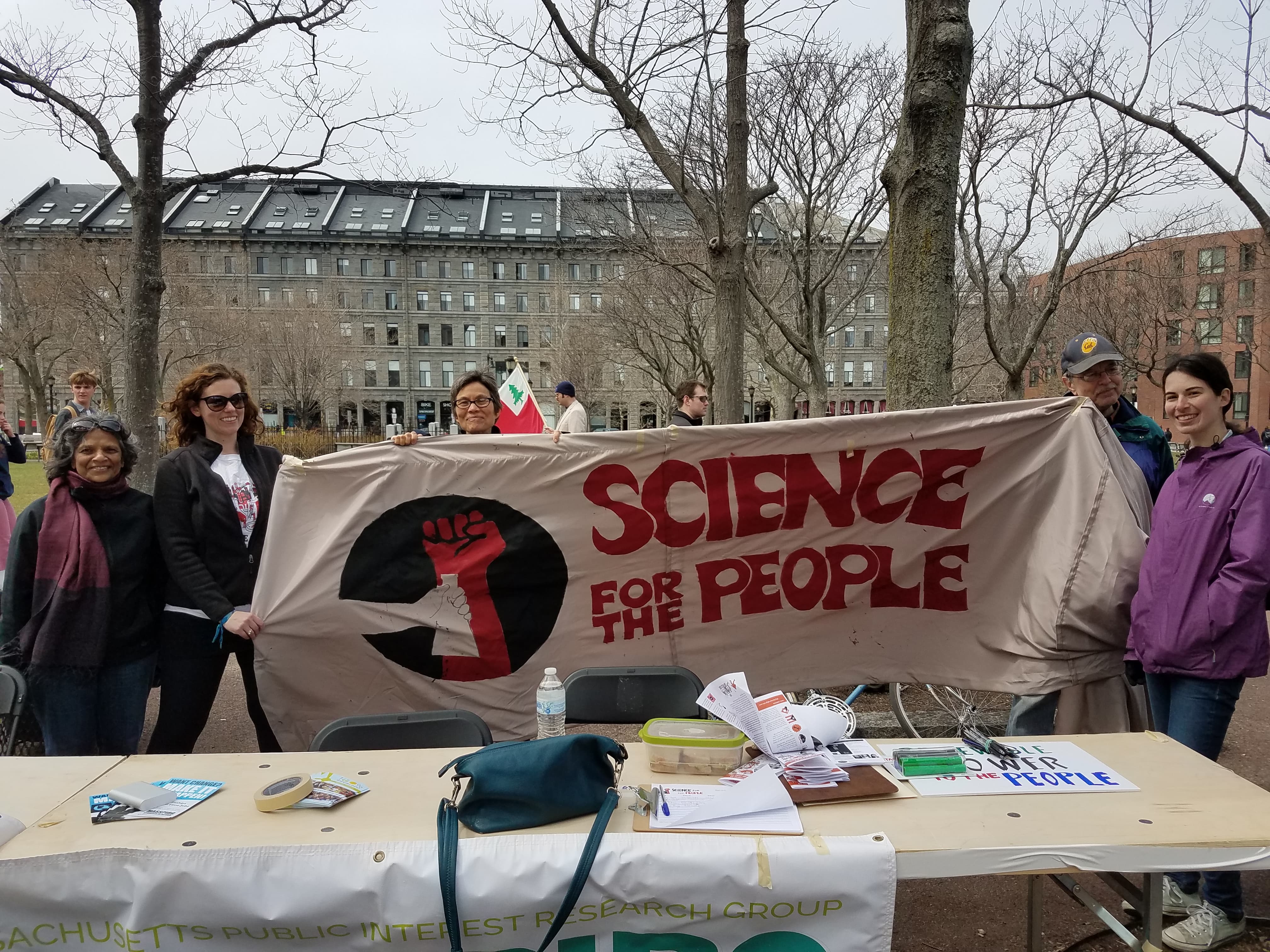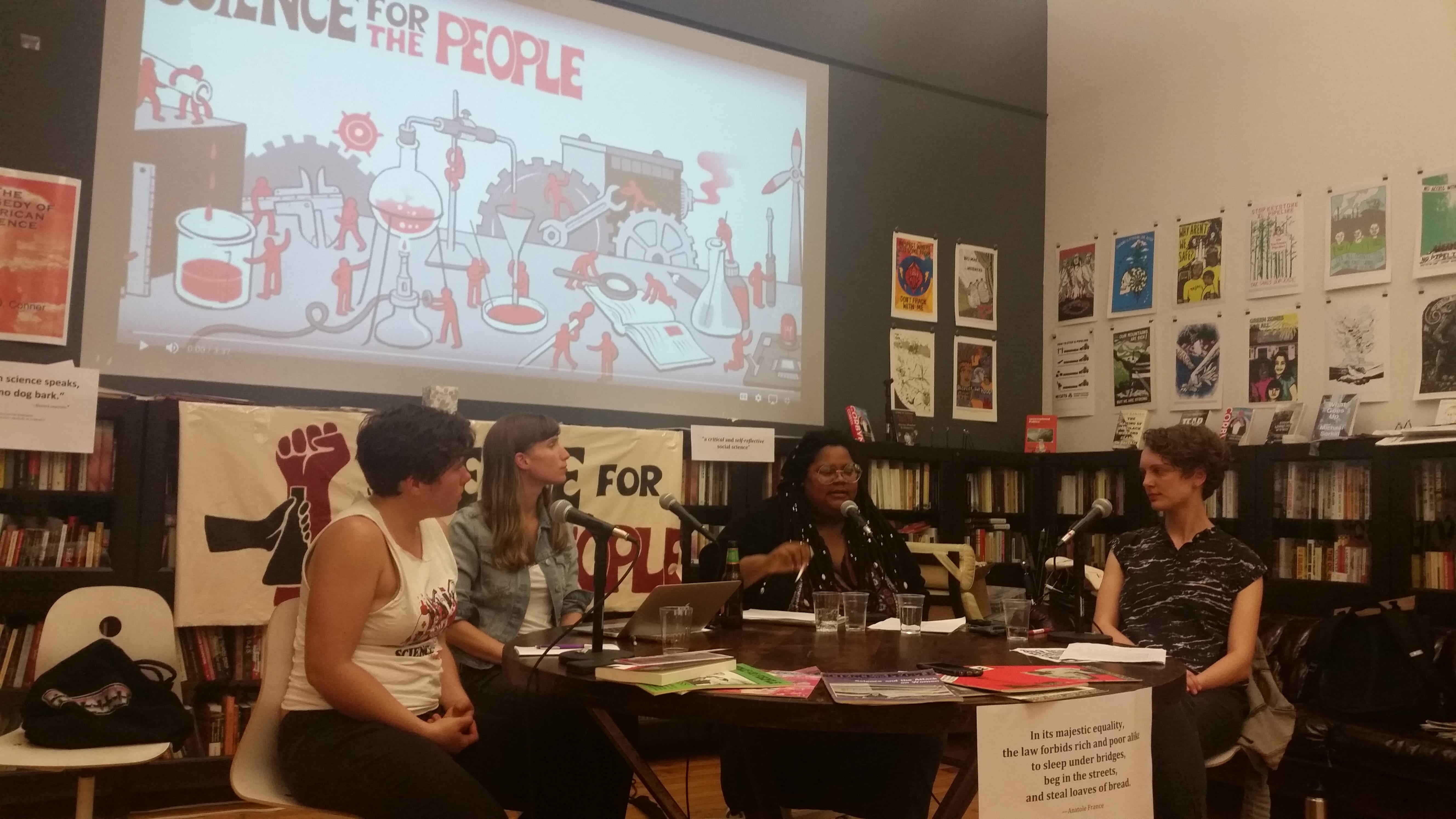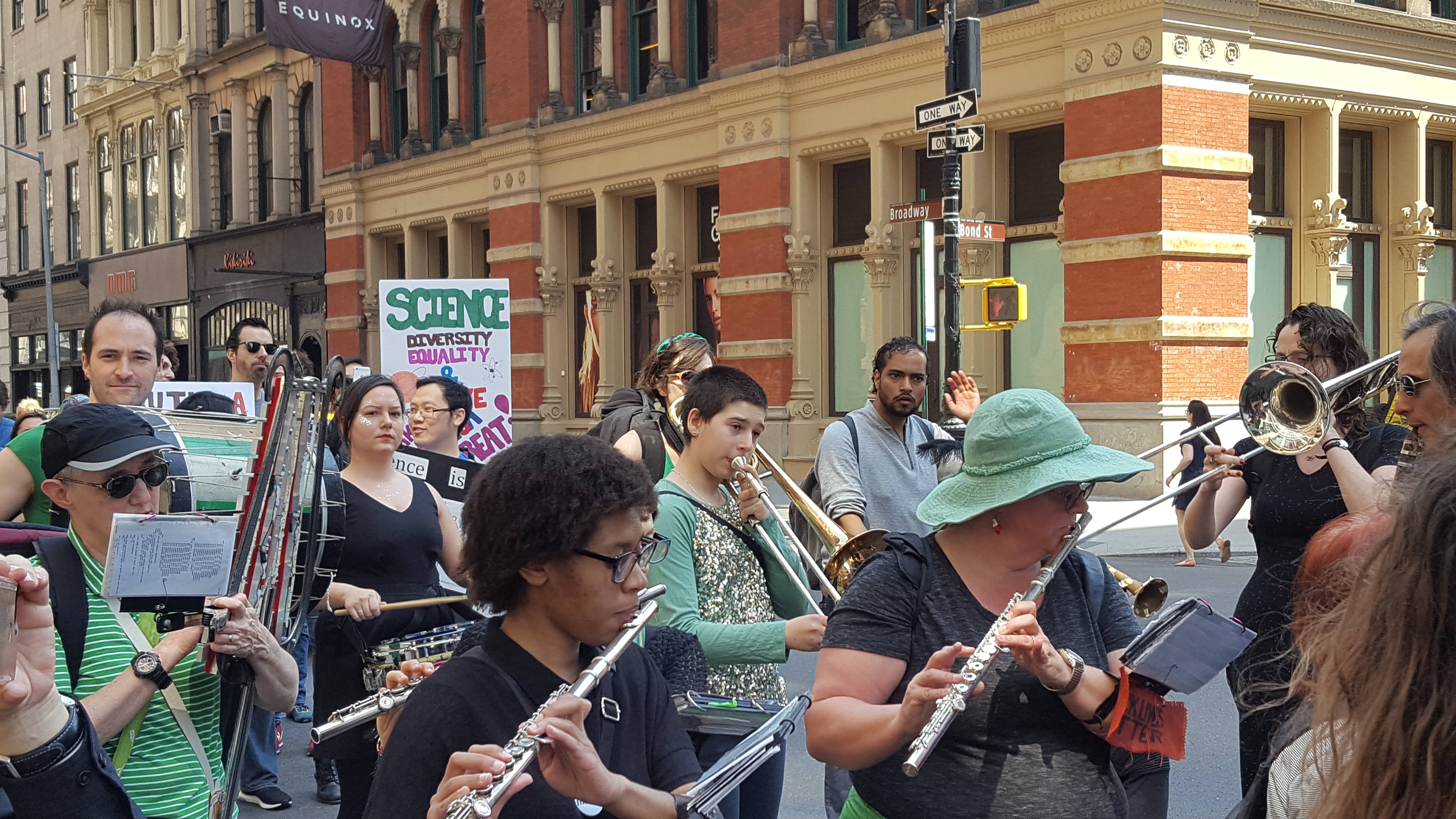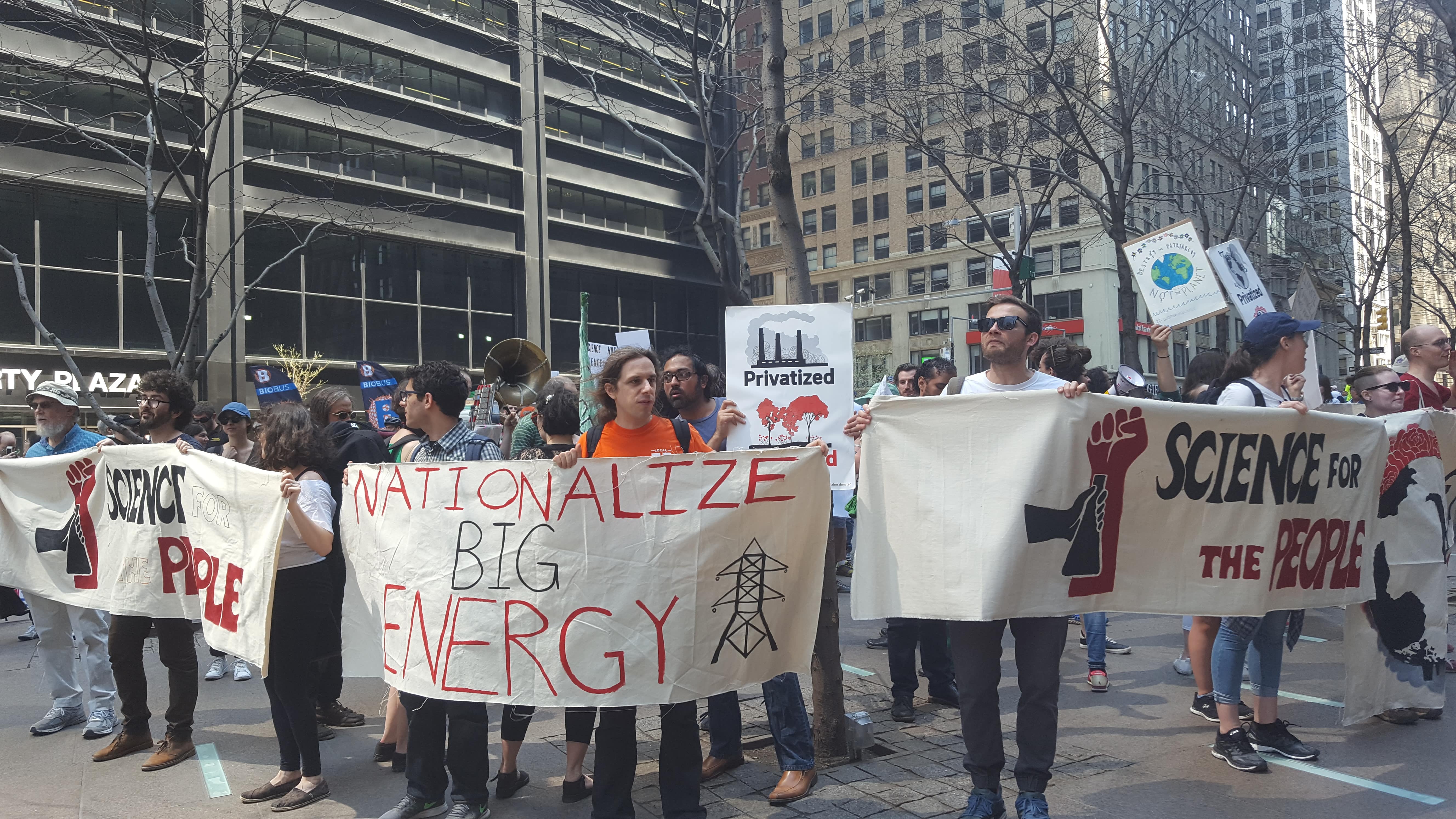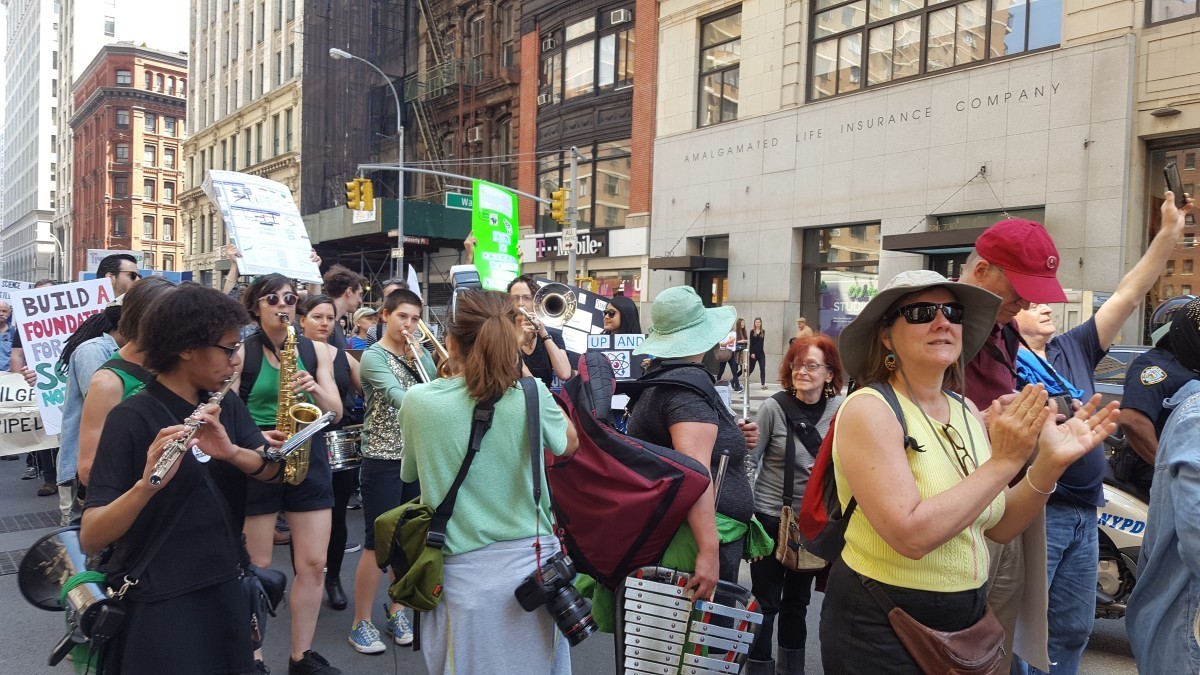“As scientists we must start to thinking about how we can address all the challenges that earth will have sooner than later.”
Last year, Science for the People published a statement in response to the first March for Science–our first statement as a revitalized group. We have grown considerably in the past year, and local chapters took the lead in 2018 to present a radical perspective at local March for Science events and distribute materials created by SftP activists across the country.
To document these activities, we’ve collected reports from our chapters and affiliated individuals on their participation in the March for Science. Our chapters are the core of SftP’s activism; to get involved with Science for the People you can join an existing chapter or start one where you are!
On Saturday, April 14, Science for the People chapters and members participated in March for Science events in New York City, Seattle, Chicago, Pittsburgh, Berkeley, Atlanta, Boston, and Hermosillo, Sonora, Mexico.
- In New York, the chapter held a teach-in at the main March for Science and organized a panel on “Gender, Race, and Science” (which you can read and listen to here).
- In Hermosillo, SftP participated in a march and set up discussion tables and popular science demonstrations.
- In Atlanta, SftP organized a speaking event after the March. Read the speeches by two SftP members here.
- In Chicago, SftP organized a table at the Field Museum to distribute literature and talk with local scientists.
- The Boston chapter created a follow-up event for the contacts they made at the March featuring a presentation on biological determinism from an original member of the group.
- And the Berkeley chapter met as a group for the first time at the 2018 March for Science!
In Atlanta and Pittsburgh, SftP participation in the local March for Science highlighted academic unionization efforts at the University of Georgia and the University of Pittsburgh, respectively. Participants in Hermosillo also highlighted budget cuts that are harming academic science training, as well as biodiversity laws that would be harmful to Protected Natural Areas and to indigenous populations and their land rights. Nearly every Science for the People participant or chapter that participated in the March for Science stressed the importance of providing a radical alternative to the more “liberal” bent of the March:
- Seattle: “Crucial to respond to is the idea promoted by March for Science, or 314action.org (and other groups) that scientists are the answer to the USA’s problems.”
- New York: “We organized around the questions of Biological Determinism, the role of Women and PoC in Science and Engineering and highlighting the ongoing challenges that these communities still face. We felt that by organizing around these issues, it would best differentiate us from the liberal milieu at the march.”
- Atlanta: “We used the March as platform for academic unionization as well as environmental racism and climate change… We think that capitalism provides us with a lot of front lines and the more diverse and intersectional our organization becomes in that fight the higher the chance that we will have impact and facilitate change!”
Participants and chapters also highlighted some common challenges that come with engaging in the March for Science as a more radical element. The most common of these included apathy among scientists and academics (Hermosillo), indifference to a more radical vision of science and social change (New York), a general suspicion of the radical left (Atlanta), and an unwillingness on the part of individual scientists and the scientific community to take a stance on challenging issues (Pittsburgh).
The solution to these challenges comes from organizing. By organizing together, we can build a durable movement for a more humane and liberating vision of science in society. Science for the People has a number of working groups that you can get involved with from anywhere!
Check out our organizing tools: the Dual Nature of Science pamphlet and contact signup form.
To close with a quotation from our chapter in Hermosillo:
“We truly believe that in the system we are living in now, there is no space for environment protection and a sustainable life, as well for basic human rights for everyone. That is why we stand and we shout even if we know that change comes with time and little steps like this. As scientists we must start to thinking about how we can address all the challenges that earth will have sooner than later.”
This report on SftP’s March for Science activities was contributed by Pittsburgh chapter member Abby Cartus. To support Science for the People’s activism and the upcoming relaunch of our publication, please consider becoming a monthly donor to our Patreon.

